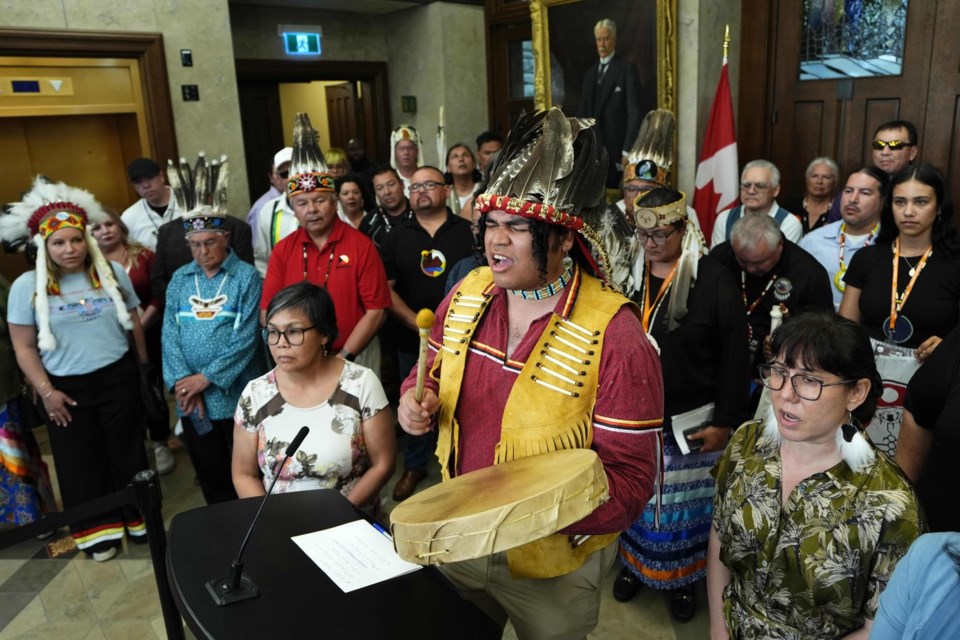OTTAWA — The federal government's major projects legislation was amended by opposition parties on Wednesday to withdraw the power the bill gave cabinet to sidestep the Indian Act, following weeks of criticism from First Nations leaders.
But Assembly of First Nations National Chief Cindy Nepinak Woodhouse said Thursday the "limited changes" made to the bill don't go far enough. She still wants the government to give members of Parliament more time to study the legislation.
The Liberal government’s controversial legislation, which would allow cabinet to quickly grant federal approvals for big industrial projects like mines, ports and pipelines, was introduced on June 6, and sailed through the committee study in about eight hours on Tuesday and Wednesday.
Amendments to the bill made in committee include removing the Indian Act from a list of laws the government can sidestep when determining whether a project should move forward.
Bloc Québécois MP Xavier Barsalou-Duval said in a media statement the change came from a sub-amendment his party posed, and that the Liberals did not vote in favour of it.
In French, Barsalou-Duval said he regrets that the Liberals didn't vote for the amendment, but he is pleased it passed.
From the moment the bill was first discussed, First Nations leaders warned the bill could violate their constitutionally protected rights.
First Nations leaders also said Ottawa could face legal challenges, and its fast-tracked projects could be slowed down, if Indigenous communities are not meaningfully consulted.
Some First Nations leaders are warning of a wave protests if the bill doesn't fundamentally change. Prime Minister Mark Carney said respect for section 35 of the Constitution, which recognizes and protects treaty rights is "at the heart of this legislation."
He said it's also important that the bill doesn't approve projects, it just "creates the possibility of these projects," which must undergo "full consultation with Indigenous Peoples to define what is a nation-building project."
"And then, if something is one of those projects, then what are the conditions in order for that project to move forward, including participation — obviously, I would think, in almost every case, environmental, other conditions — and then only if those conditions are met would the project move forward."
Woodhouse Nepinak said it appears some other "constructive suggestions" to amend the bill were voted down.
"These limited changes don't go far enough and were developed without input from rights-holders. We continue to call on Parliament to honour the Crown and have a full discussion with rights-holders before passing the bill, instead of ramming it through in a week," she said.
"We will continue monitoring the debate closely and will have more to say as the situation develops."
The legislation, which has support from the opposition Conservatives, is expected to pass Friday.
— With files from Michel Saba
This report by The Canadian Press was first published June 19, 2025.
Alessia Passafiume, The Canadian Press



